A surgeon’s diary from Gaza: ‘Conditions are filthy. Everything is infected’
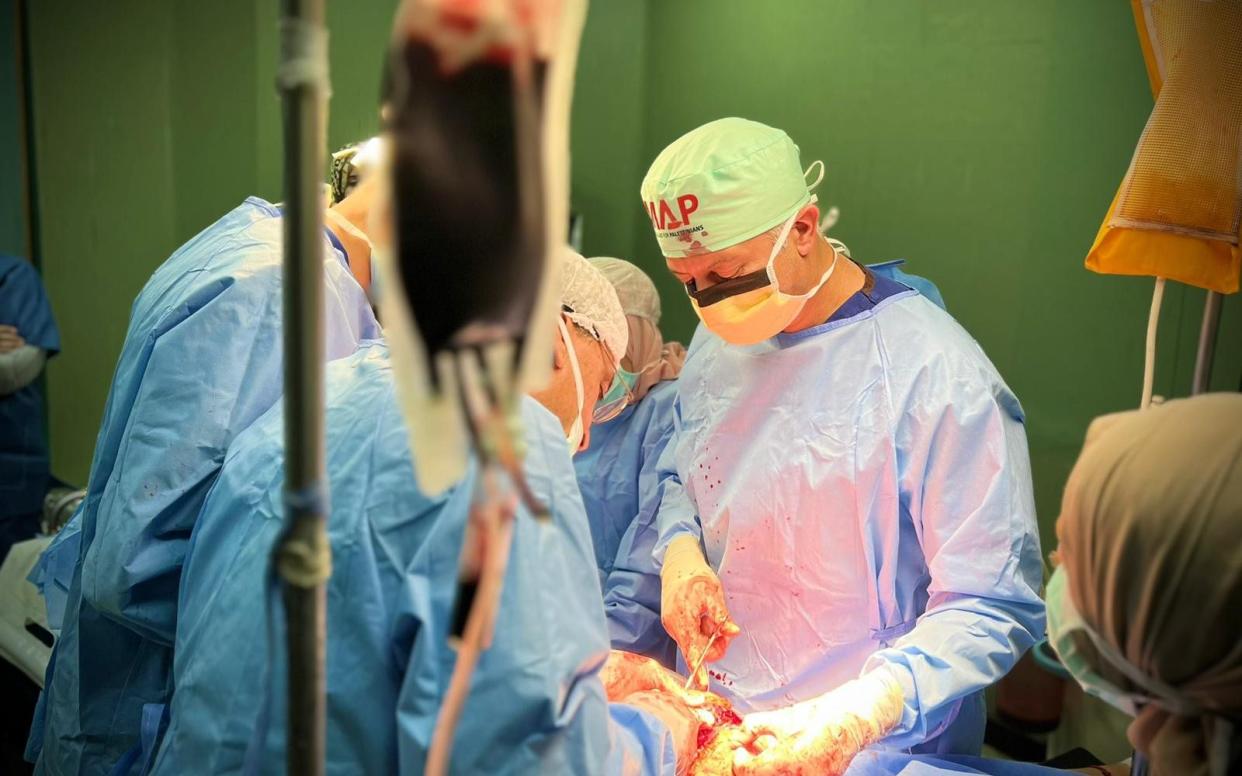
Khaled Dawas, a British surgeon at University College London, has just returned from two weeks treating patients at the Al-Aqsa Hospital, in central Gaza.
This was his second visit to the hospital, facilitated by the charities Medical Aid for Palestinians and the International Rescue Committee, after an earlier trip late last year.
During his time there, he kept a note of what he saw and those he treated in one of Gaza’s last functioning hospitals. This is his edited diary:
Day 1
My first day back in Gaza. Little has changed since I left in January. There are several hundred patients crammed into the hospital’s wards and corridors, all splayed out on dirty beds and mattresses. Before the war, the hospital had space for just 140 patients. Now there are many more.
Some are in agony. They have undergone major surgery – to treat perforated and bleeding organs, fix shattered bones and even to remove tumours – but none have access to proper painkillers or antibiotics. Their wounds weep with pus.
It falls to families, huddled around their loved ones, to provide what post operative care they can. They wipe brows, feed them scraps, and alert us doctors if they develop a fever, become unbearably uncomfortable or slip into unconsciousness.
One notable change is the prevalence of late-stage cancer in many patients. My colleagues say they’re seeing far more than they did a few months ago. I treated two patients today with cancers that are likely to be terminal.
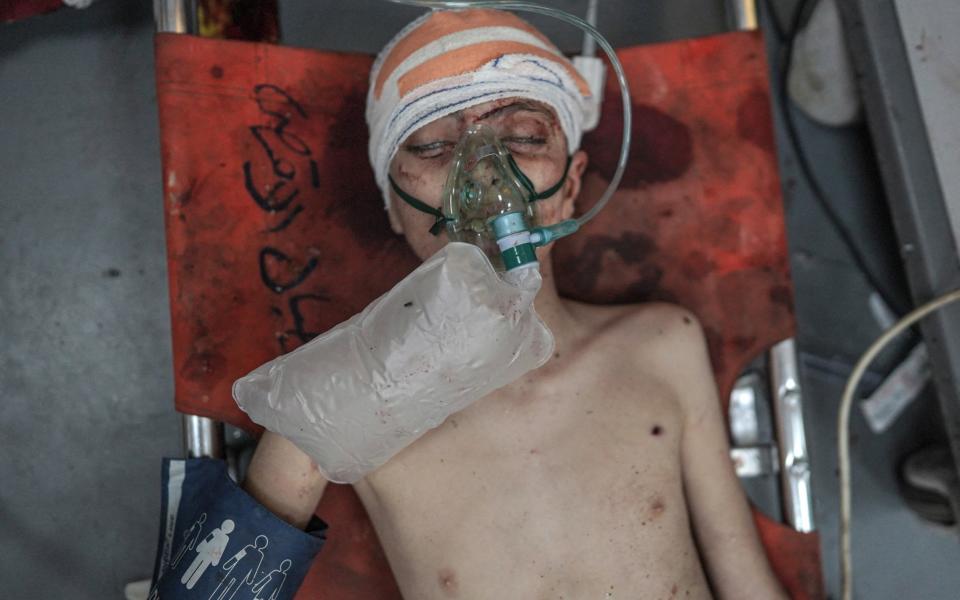
One was Basam, a 45-year-old man with colon cancer. His colon was so obstructed from a tumour that he hadn’t been able to go to the toilet for five days. His abdomen was inflated like a balloon and he was in agony.
There was no CT scanner to identify the exact location of the tumour or its size, so we pressed ahead with operating on him. We had to remove a 30cm section of bowel and give him a colostomy.
After we closed his abdomen, he should have been rushed to intensive care. Instead, because there is no space for him, Basam was moved into a small side room, which he shares with several others.
The conditions are filthy. Everything is infected – every wound, every surface, every patient. It makes postoperative survival all the more difficult.
Day 2
I was introduced to a man in his 20s today called Mohammed who had been caught in an explosion and suffered extensive injuries to his abdomen and legs.
Both legs had been amputated. However, his abdominal wound remained open, his intestines clearly visible, despite several unsuccessful attempts to close it.
To make matters worse he had a fistula: a non-healing hole in his intestine which caused faeces to spill onto his skin. It looked awful, it smelt acrid and yet his father smiled at me; a smile which was more a desperate plea for help.
We had to sedate him and change his dressings twice in the space of 24 hours.
I also saw three patients with gunshot wounds from ‘quadcopters’, drones which people say patrol the refugee camps not far from the hospital. One was a 75-year-old man, who was partly demented, the second a 40-odd male, and the third a 25-year-old woman. The patients told me this happens all the time. They were fatalistic about their lives.
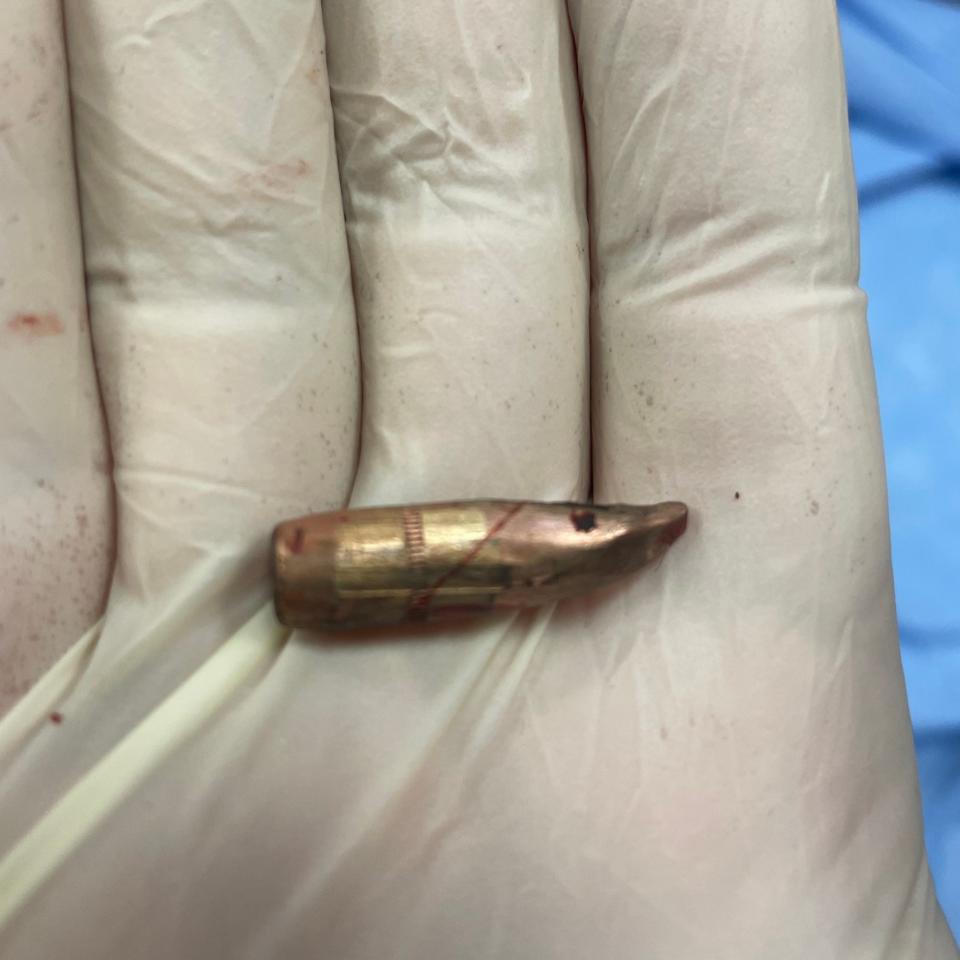
Day 4
A heartbreaking day. Basam, my colon cancer patient, died last night.
Since the operation, the family repeatedly approached me for painkillers and help, but there was nothing I could do. We just don’t have the fluids, antibiotics and nutrition needed.
His passing was sudden, my colleagues said. It could have been a pulmonary embolism [clot in the lungs], dehydration or sepsis. We don’t know but all are plausible here.
Day 5
Today I treated another child, a 14-year-old girl, whose lungs were filled with pus, the result of a simple chest infection that has been allowed to progress.
Known as empyema, it’s a condition that belongs to the 19th century and is one I’d not seen during my 30 years as a medic in the UK. Yet within the space of five days, I’ve now encountered three separate cases, all in young children.
One of the patients, a boy in his teens, had more than three litres of pus drained from his lungs. Another, a 12-year-old girl, required surgery to further clear her lungs.
Afterwards, she was too scared to allow me to remove the draining tube that was inserted into her chest. I had to play a game with her where I told her it wouldn’t hurt if she held her breath.
After many failed attempts, I was able to take out the tube. She didn’t feel a thing and lit up with a huge smile.
It was a rare moment of warmth and happiness that I’ve not experienced much of so far.
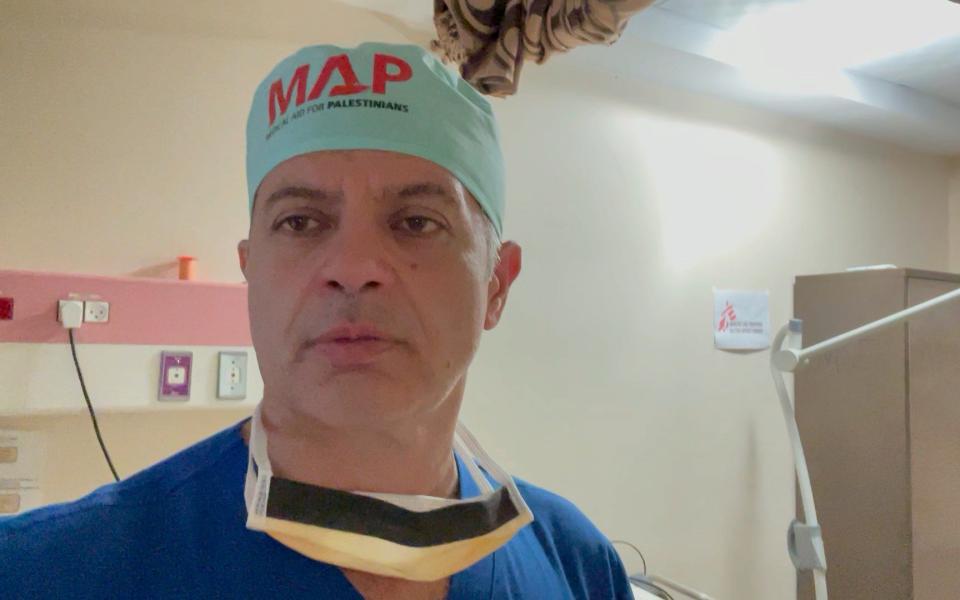
Day 6
A week ago, the bodies of the World Central Kitchen aid workers killed by the IDF were brought into the hospital’s mortuary at midnight and wrapped up before being taken away by the Red Cross.
I learnt this from the 19-year-old whose job it is to wrap the dead. He told me that, in just a month, he’d become used to the sight of corpses, some horribly mutilated.
They often come in waves, he said, with entire households killed in a single airstrike.
Others are brought in individually days after they die, discovered among the rubble. These bodies are often decomposing, their faces unrecognisable, he said.
What does it say that such sights have become normalised to someone so young?
Day 8
There was heavy bombing overnight. Since the end of Ramadan and beginning of Eid, there seems to have been an intensification in shelling. That’s meant far more patients over the past 48 hours.
One I treated was a 19-year-old called Anas, who’d been hit by an IDF tank shell while retrieving possessions from his family’s destroyed home in Al Zahrah, just north of here. He had been with a friend and his friend’s mother. Shrapnel had pierced his breast bone leaving a small piercing hole.
He was suffering from cardiac tamponade – which is when blood and fluid fill the sac around your heart, compressing it and preventing it from pumping properly. We considered further investigations but he was close to death so took him into surgery. There were no cardiac surgeons at the hospital, so it fell to me to lead the operation.
We opened up his chest, from left to right, and found a small hole in his aorta. We repaired it, closed him up, and stitched up the wounds. Whether or not he makes it is now a matter of chance. I pray he doesn’t pick up an infection.
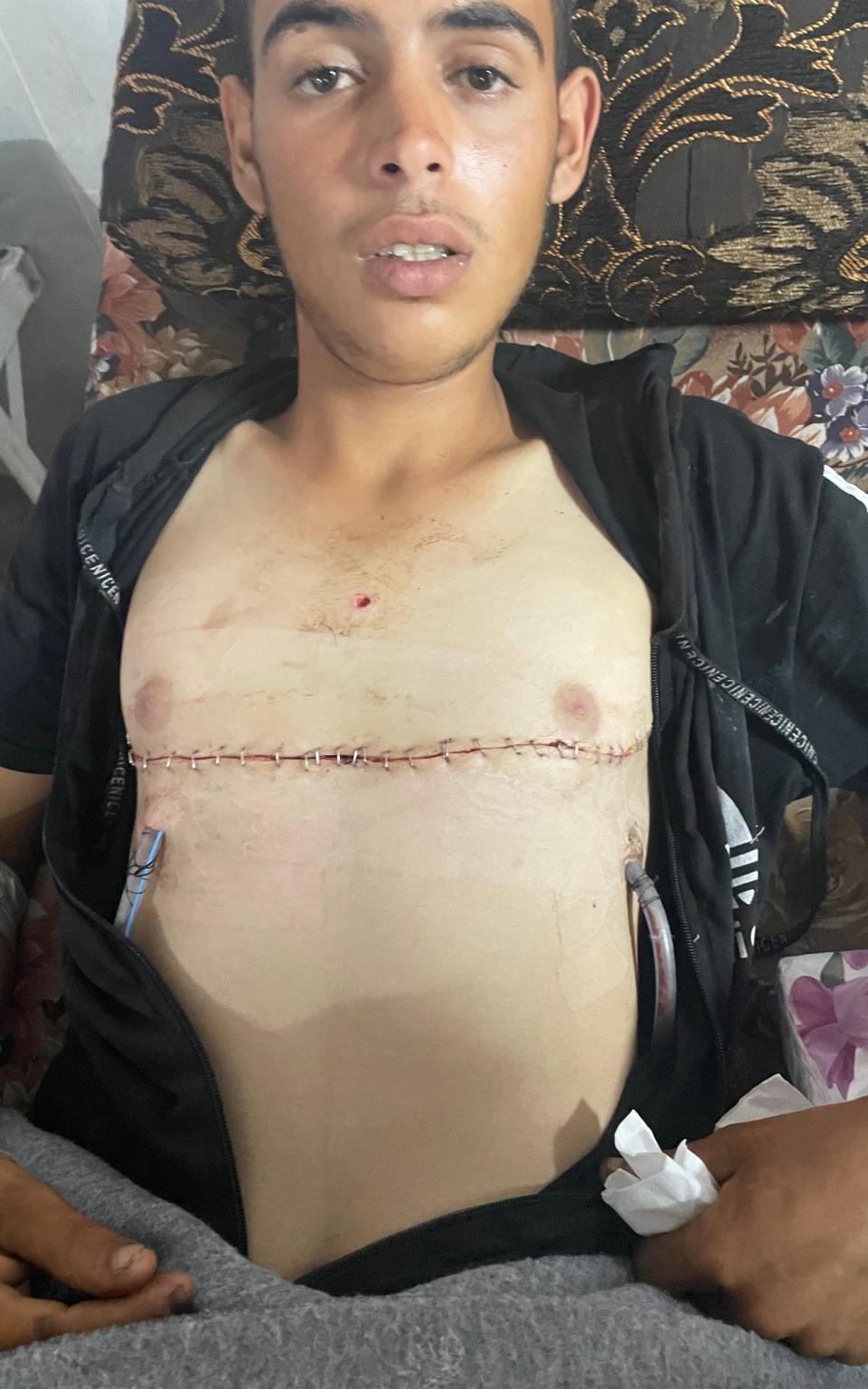
Day 9
Another night of heavy shelling.
I was advised to take my headphones with me and download some “sleep music”. That was an ingenious idea and I owe my good French friend for her advice. Nevertheless, the shaking of our room is difficult to sleep through. Four of us share a space about four metres square. I’m on a mattress with one side which runs across the bottom of the other three.
Our logistics team from the IRC and MAP had given us enough food and water to last the mission. The four of us crouch over our meal on the floor each evening. We have much more than most, but all of us have lost weight here.
The hospital assigned us a bathroom and we kept the key hanging on a piece of string inside the door to our room. The patients knew when I had showered and would wish me a “na-iman” [bless you], as is the Arabic tradition, as I walked back to our room.
Work today started at 7.30am when one of the paediatric surgeons rushed into our room to say he needed urgent help: three children had been brought in – an 11-year-old girl, her seven-year-old brother, and a 10-year-old boy. All required surgery following a strike on what we were told was a local school where they were sheltering.
Fatima, the girl, was in a particularly bad way. She had lost 80 per cent of her blood volume. The bleed appeared to be from her abdomen. We performed two separate surgeries in a bid to find the source. By the time we’d finished, at 11.30am, the bleeding had stopped and she appeared stable. But she was not clotting well.
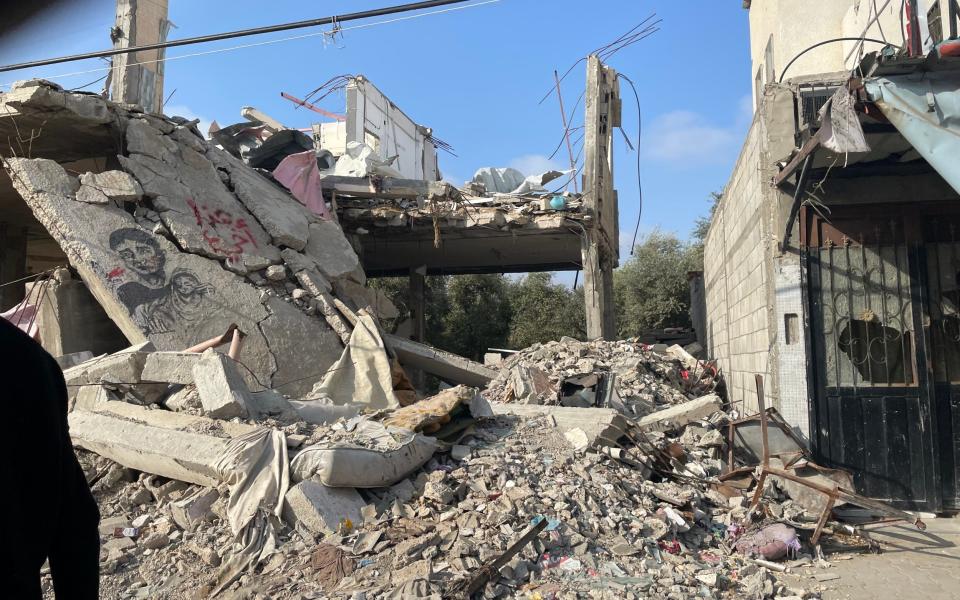
In between her two operations, I operated on one of the boys who had blood pouring from his rectum. He was unconscious. Shrapnel had entered through his right buttock and ruptured a vessel running from his pelvis to his rectum. The operation took 90 minutes but we managed to stabilise him, although we left him in great pain as there were no painkillers.
By the time I’d finished, I had to return to the 11-year-old girl as blood was continuing to seep from her abdominal wounds. We took out her spleen. We were desperate and couldn’t be certain we had stemmed the flow as we stitched her back up again.
It felt rushed and uncertain but there was nothing else we could do. She’s incredibly fragile, having lost so much blood. But I’m hopeful she’ll survive.
Day 10
One final full day in the hospital to go and my emotions are beginning to fray.
The lack of drugs here means there is so much pain. We do what we can to pull patients back from death but the conditions in the hospital work against us.
I knew what I was signing up for when I agreed to return to Gaza but slowly it’s catching up with me. You can only run on adrenaline and operate in pilot mode without properly processing things for so long.
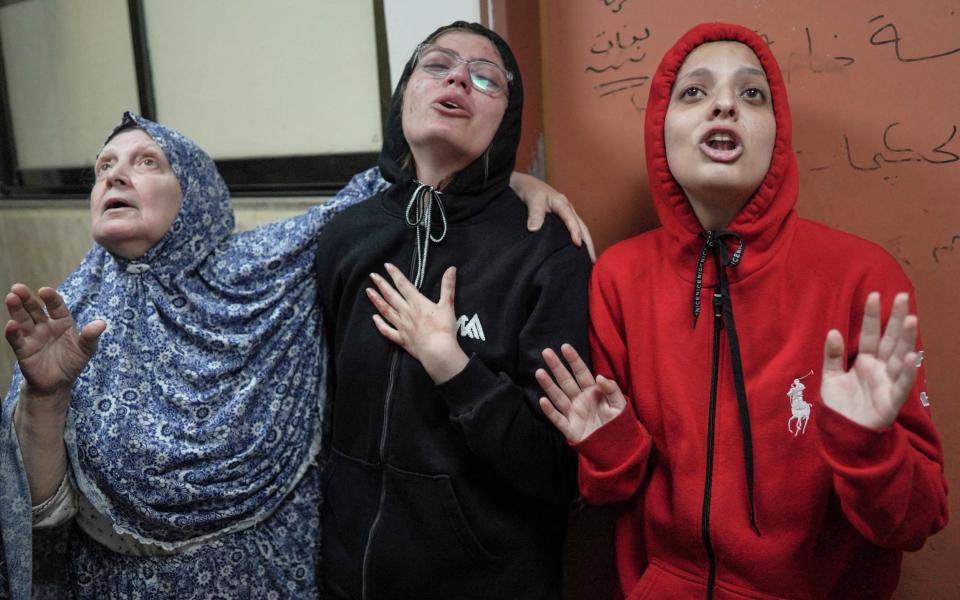
In a way I’m worried I’ve been too emotionless, too robotic. To counter this, I’ve tried as much as possible to talk to my patients and their families.
I’ve met rich and poor but all here in the hospital are dishevelled. They say how humiliated they feel, forced to share tents and toilets with hundreds of others. For women, it is especially difficult.
Still, not all my patients are deteriorating. The young man with the ruptured aorta is on the mend and even sitting up and smiling in bed.
I have to remind myself that I’m here for people like him.
Day 11
The quietest night of the trip so far.
The lack of gunfire and shelling was eery and left me fearing what was to come next. Everyone worries in the silences.
It was only later when I read about Iran launching an attack that I understood why the noise had eased off.
Despite this, my final day in the hospital was one of tragedy. Fatima, the 11-year-old whose spleen we removed, passed away. She had simply lost too much blood.
It left me with a sense of hopelessness. My colleague Hisham remarked I looked anxious. I felt my eyes welling up and turned away for a few seconds while I pulled myself together.
On leaving the hospital we stopped briefly at the beach. I hadn’t felt the fresh air on my face for two weeks.
I didn’t go in the sea but a few children were standing in the water fishing with a net. They asked us if a ceasefire was coming. I’m told that in Israel, ahead of Passover, people were doing the same thing, probably hoping for the same.
Protect yourself and your family by learning more about Global Health Security

